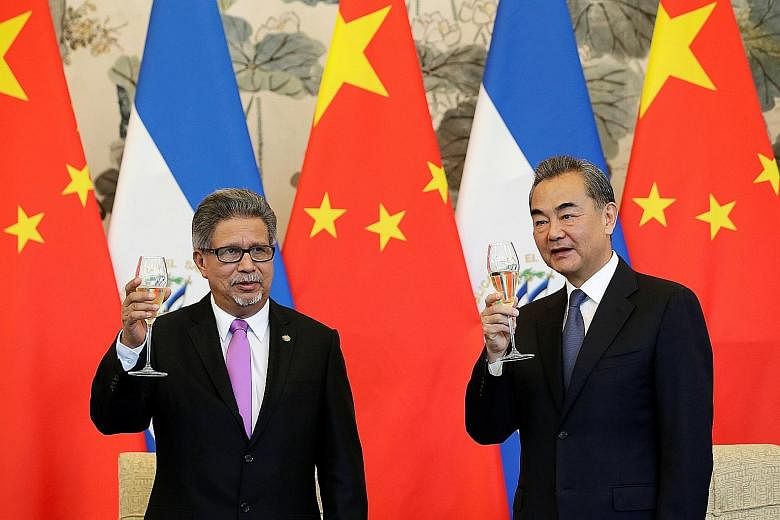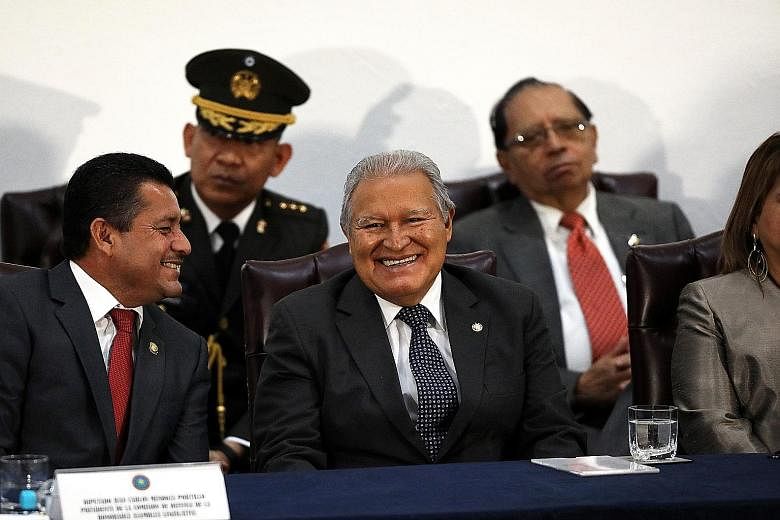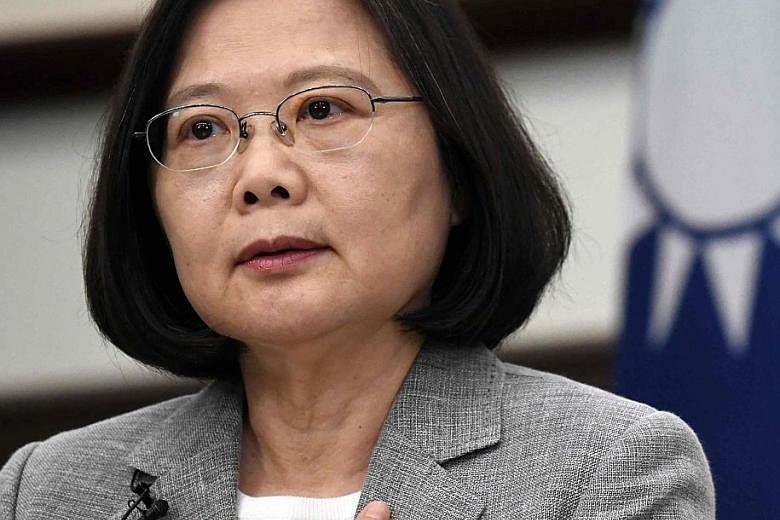China has established ties with El Salvador in another blow to Taiwan as the Central American country also severed relations with the self-ruled island, reducing its diplomatic allies to just 17.
Chinese Foreign Minister Wang Yi signed a joint communique establishing ties with his El Salvadorean counterpart Carlos Castaneda at the Diaoyutai State Guest House in Beijing yesterday.
Speaking to the media later, Mr Wang said El Salvador has committed to abide by the one-China principle and that it established diplomatic ties with China without "pre-conditions".
Beijing demands that diplomatic allies recognise or acknowledge the principle that there is only one China in the world, that the government of the People's Republic of China is the sole government of China, and that Taiwan is an inalienable part of China's territory.
Mr Castaneda said establishing ties with China was a "strategic decision" made by his government to "create conditions to change the historical standing of our country and really elevate the livelihood of the people".
In Taipei, President Tsai Ing-wen said Taiwan will not bow to pressure, adding that the El Salvador move was further evidence of China's efforts to squeeze the island, reported Reuters.
"We will turn to countries with similar values to fight together against China's increasingly out-of-control international behaviour," she was quoted as saying.
China has been squeezing Taiwan's international space since Ms Tsai, who is from the independence-leaning Democratic Progressive Party, took office in May 2016.
Ms Tsai has refused to acknowledge the 1992 consensus that China and Taiwan belong to one China, with each side having its own interpretation of what this means. China has insisted on the recognition of the consensus as the basis on which to develop cross-strait ties and has since 2016 also stopped all official communications with Taiwan.
Not only has Taiwan lost five diplomatic allies since then - including Burkina Faso, Dominican Republic, Panama and Sao Tome and Principe - but it has also been shut out of meetings of international organisations such as the World Health Assembly.
In the face of pressure from China over its formal international space, Taiwan has sought to increase its informal international space through moves like its New Southbound Policy started in 2016.
This aims to reduce Taiwan's reliance on China economically and increase cultural and other exchanges with South-east Asian and South Asian countries as well as Australia and New Zealand.
Soft-power measures under this policy include the offering of scholarships to students from the region to study at Taiwan's universities and training of doctors from Asean.
At the same time, Taiwan under Ms Tsai appears reluctant to compete with China in what has been termed as "dollar diplomacy" to hold on to its diplomatic allies, mainly small, impoverished countries in the Pacific, Africa and Latin America.
Indeed, its Foreign Minister Joseph Wu yesterday told reporters Taipei was not willing to engage in "money competition" with China.
He said El Salvador had since last year asked Taiwan for "massive funding support" for a port development but that Taiwan was unable to assist in this, according to Reuters.
Meanwhile, El Salvador's President Salvador Sanchez Ceren has said, in a nationally televised speech, that his country would see "great benefits" and "extraordinary opportunities" in the new relationship with Beijing.
Mr Wang said: "I'm confident that the people of El Salvador will feel the friendship and warmth of the Chinese people and will get tangible gains from its cooperation with China."



